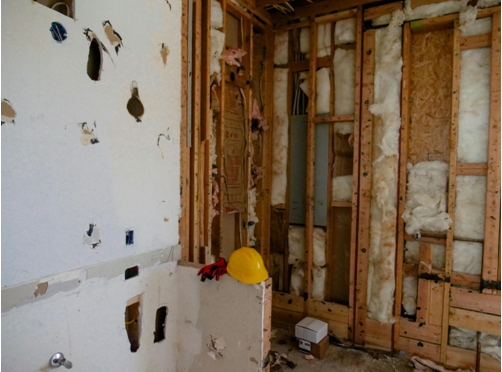6 Steps to Buying a Home: How to Prepare for the Home Buying Process.
When buying a home, the process may seem a little daunting. It’s a large purchase with a long commitment. Buying is a bit stressful and requires a lot of time and patience. In order to have the best and easiest experience, we have provided a step-by-step process to assist you in preparing for what would be required for you and/or your spouse when buying a home.
STEP 1: Understand and Improve Your Credit Score
Having a good credit score is always an important factor when making any large purchase. You could offer a larger percent deposit down on the home, make a steady income, and still get denied because your credit score is too low. A low credit score will also affect your loan amount and your interest rate. So, first things first, CHECK YOUR CREDIT SCORE. Don’t just rely on your FICO score card , you will also want to check, Equifax, Experian, and Transunion. You want to review all three of these to get the most accurate depiction of where you stand with your credit, The same information isn’t always reported to the same industries so the scores may be slightly varied. Even if you have a nearly perfect score, you should always be sure to check. You want to make sure that the score is as accurate as possible and ensure that no mistakes were made when reporting your score.
STEP 2: Identify Your Budget
As soon as you have decided to purchase a property, it is imperative to work out some numbers to see what exactly you can afford. Understand that you should budget for what homes you can need, and not the homes you want. The best way to start is to research the average utilities, HOA fees, and property taxes in all of the neighborhoods that you are interested in. Now, take those average costs, and deduct it from your income, and be sure to include your other expenses, such as car payments, monthly groceries, credit card payments, or any other recurring monthly payments. Whatever you have remaining is an estimate of what you will be able to pay for your mortgage each month. You don’t have to do all of these calculations by hand! There are websites that provide mortgage calculators to assist you in understanding where your budget stands. Also, keep in mind that you would have to account for closing costs, and the deposit for the property, so be sure to factor that information in as well.
STEP 3: Know What Type of Home You Want to Buy
You know your credit score and you have a strong understanding of what your budget looks like. Now you need to look at what kind of home you want. The first thing you want in a home is something that will satisfy your needs. Make sure that the house is big enough for your current family or if it will be able to sustain the potential growth of your family. You want to look at the amount of bedrooms, and bathrooms, the size of the yard, the overall location, and school district. Then once you understand your “needs” you can start to factor in your “wants” does it have a pool? is there an updated kitchen? etc. Separate your needs and wants in a list and try to find a home that meets the criteria of your “needs” first then start addressing the other features that you would like in your new home. Once that’s finalized you can start looking!
STEP 4: Find Your Agent
Before you can start looking at the home you are interested in, you need a real estate agent to get you in. Start by looking for someone in your local area and read some of their reviews. Ask for recommendations from friends or family, and neighbors and try to get a strong list of qualified agents. You can reach out to them and set up an appointment to meet. You should prepare some questions to ask that you feel are important for you to know before you decide on who to work with. Be sure to specify that you are just exploring your options when meeting with them. Once you find the best agent for you, let them know that you are working with them exclusively. and be sure to inform the other agents that you have decided to work with someone else. Listen to your agent and trust that they have all of the knowledge and expertise to help you with any concerns you may have about a potential home. They may also suggest other homes that you might have missed that may not have checked every one of your boxes. Go ahead and look at it anyway. You never know if it could potentially the home of your dreams. Remember, your agent wants to help you and find you a house that you love. They’re your best friend through out this entire process.
STEP 5: Write, Negotiate, Apply, Inspect.
Once you’ve found a home you are absolutely in love with, you can begin to write an offer. Have your agent write it with you so you know exactly what to include and make an offer that you are pleased with. This is important because once you write an offer, and it has been accepted, you will now be in a legally binding contract. You want to make sure that everything is featured in the offer and all everything in it is correct. Once the seller has signed, no changes can be made in the written offer, so be sure to read it, read it again and have your agent do the same.
As soon as the inspection has been complete you can start negotiating with the seller depending on whether or not there have been any issues with the home. Once your offer has been accepted, you can apply for your mortgage! If you’ve been pre-approved and nothing has changed, it should be a fairly easy process. Especially if you have organized your finances before hand. Next is to stay in touch and respond to the inspection and appraisal. The inspection essentially summarizes the state of the home and identifies any issues the home may have that could potentially effect your home in the future. Now, this is going to dive deep into the bones of the house and see anything that wasn’t visible when you originally saw the home. Physical damage that has been seen should already been included in the offer and not brought up for negotiation after the inspection. Based on the results and findings is when you may or may not have to renegotiate the price again. Before moving forward be sure to thoroughly check everything to ensure there are no mistakes.
STEP 6: Close the Sale
You’ve finally found the home of your dreams and it’s time for your closing meeting. The seller has there own meeting prior, where they sign over the home, and they are no longer the owner. The buyer has their meeting with their agent where they give their deposit money, and sign the mortgage and purchase paperwork. Once everything has been confirmed, the home is yours!
We hope while reading this, it helps you understand the process of buying a home a bit easier. If you ever have any questions moving forward, you can always reach out to us at The Brown Home Group at 321-348-8720. We will gladly answer any questions you may have.
Written By: Alyssa Brown
Brown Home Group at Keller Williams Advantage II Realty
























